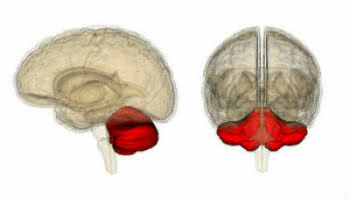O endoplasmic reticulum is organelle cytoplasmic present in eukaryotic cells. It is a complex system of membranes formed by interconnected tubules and cisterns. The endoplasmic reticulum can be rough or smooth, and this classification is related to the presence or absence of ribosomes adhered to the membrane of the organelle. It is worth noting, however, that both regions are connected, their membranes being continuous. Among the functions performed by this organelle, we can mention the synthesis and transport of macromolecules.
Read too: Differences between prokaryotic and eukaryotic cells
endoplasmic reticulum
The endoplasmic reticulum is a membrane system that runs through the cytoplasm of eukaryotic cells and is in continuity with the nuclear envelope. This membranous organelle is made up of interconnected tubules and cisterns (flat sacs). The membrane of the endoplasmic reticulum, in some places, presents a series of adhered ribosomes, and in others, these structures are absent. Due to this characteristic, it is possible to distinguish two regions: the rough and smooth endoplasmic reticulum.

Rough, granular or granular endoplasmic reticulum
It is characterized by presenting ribosomes (in the form of polyribosomes) adhered to the outer surface of its membrane. It usually presents itself as a series of flattened bags, also called cisterns. The rough endoplasmic reticulum membrane is continuous with the outer membrane of the nuclear envelope.
Do not stop now... There's more after the advertising ;)
The ribosomes present in the rough endoplasmic reticulum membrane synthesize proteinswhich are released inside the organelle, which has the role of ensuring that they are separated from the proteins produced in the cytoplasm and are later sent to other parts of the cells or even out of them.
Most of these proteins are transported to the golgi complex, in which they undergo some modifications and are packaged into vesicles that are taken to specific locations. Cells specialized in protein secretion, like the cells of the pancreas and plasma cells, thehave a well-developed rough endoplasmic reticulum.
In addition to protein segregation, the rough endoplasmic reticulum participates in processes such as phospholipid production, membrane protein synthesis, glycosylation (addition of sugars to proteins) initial of glycoproteins and assembly of protein molecules formed by several polypeptide chains.
Read too: Cell secretion and Golgi complex
Smooth or agranular endoplasmic reticulum
It has a membrane without adhered ribosomes and generally membrane arranged in a tubular shape. The smooth endoplasmic reticulum is in continuity with the rough endoplasmic reticulum.
The smooth endoplasmic reticulum is related to different processes, depending on the cell in which it is found. In cells producing hormones steroids, such as adrenal gland cells, the smooth endoplasmic reticulum plays an essential role in synthesis of these hormones. In addition to steroids, the smooth endoplasmic reticulum is related to the synthesis of other types of lipids, as phospholipids, used in all cell membranes.
The smooth endoplasmic reticulum is well developed in cells of the liver, as they play an important role in inactivation (detox) of harmful and toxic substances to the body. Some substances, such as alcohol, promote the proliferation of smooth endoplasmic reticulum in this organ, thus ensuring greater detoxification. This explains, for example, why, over time, people who use this substance need increasingly higher doses to achieve a certain effect.
The smooth endoplasmic reticulum also participates in the carbohydrate metabolism, being fundamental in the formation of glucose through the hydrolysis of the glycogen. In addition, another function assigned to this organelle is the ability to store calcium ions, this role is important in the process of regulating muscle contraction. It is noteworthy that, in muscles, the endoplasmic reticulum is called the sarcoplasmic reticulum.

Endoplasmic reticulum functions
The table below shows the different functions performed by the endoplasmic reticulum, separating them according to the portion of the reticulum that performs them:
Endoplasmic reticulum functions | |
Rough endoplasmic reticulum |
Smooth endoplasmic reticulum |
|
|
By Vanessa Sardinha dos Santos
Vanessa's teacher
Would you like to reference this text in a school or academic work? Look:
SANTOS, Vanessa Sardinha dos. "Endoplasmic reticulum"; Brazil School. Available in: https://brasilescola.uol.com.br/biologia/reticulo-endoplasmatico.htm. Accessed on June 27, 2021.


